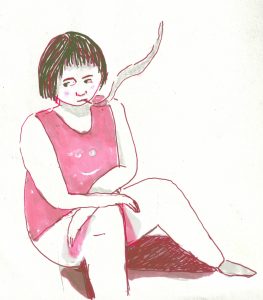
It’s legal, but barely
By Katie Czenczek, News Editor
With October 17 quickly approaching, the BC government has revealed how cannabis will be regulated in our province.
A press release from the Ministry of Public Safety and Solicitor General highlighted that there will now be two different types of licenses for those interested in selling cannabis, replacing the July 2018 Interim Licensing Regulation. One of the key points from the press release was that the use or opening of cannabis in licensed retail stores and government cannabis stores is prohibited. This makes it so dreams of Amsterdam cafés won’t really materialize.
Interestingly enough, the majority of people who replied to a telephone survey conducted by the BC government—68 percent of respondents—were in support of establishing tasting lounges or cannabis cafés. For those who filled out a feedback form, 75 percent supported the idea.
Cannabis can be smoked, vaped, or consumed in any way in public spaces where people also are allowed to smoke tobacco or vape. Places where children are likely to be—such as schools or parks—are strictly prohibited. The only exception to this rule is for those who use medicinal marijuana, who will be able to do so at schools and on trains, boats, and even inter-city buses. Douglas College has banned all cannabis smoking and vaping, though they did not indicate on their website whether that included medicinal uses.
Adults, which in this case is anyone 19 years and older, are able to grow up to four cannabis plants per household as long as the plants cannot be seen by the public. That being said, landlords and strata councils will have the ability to ban people from growing their own plants.
Driving while high will be criminalized similarly to how it already has been in the past. Going forward, the BC government plans to “create a new 90-day Administrative Driving Prohibition (ADP) for drug affected driving”, according to the BC government’s website.
BC liquor stores will sell pre-packaged and sealed dried cannabis, seeds, and oils. All licensed selling of cannabis will be taxed a seven percent PST on both medicinal and recreational products. The maximum amount of cannabis that a person can possess in a non-public place is 1,000 grams.
US Customs and Border Protection (CBP) said that Canadians working in the cannabis industry legally will be allowed entry into the US. This is a dramatic shift to what was previously said two weeks ago, when the CBP banned workers from entering the country. It’s a significant change in border control over cannabis, since previously any mention of cannabis, legal or not, could give a Canadian a lifetime ban from the US. However, it should still be noted that for those who are just using recreational cannabis, they may still be at risk for lifetime restriction if considered an “abuser” of drugs banned by our neighbours in the south.


